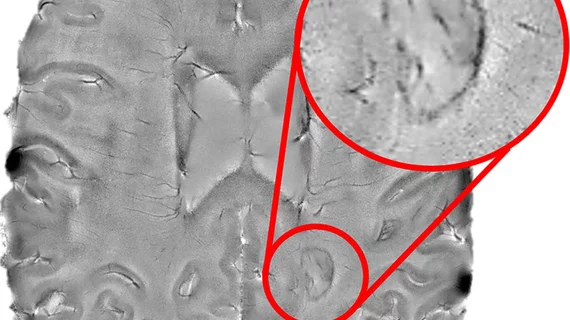MRI reveals ‘smoldering’ brain spots may indicate severe MS
New research published in JAMA Neurology has found chronic active lesions, which appear as dark rimmed spots on brains scans, to be associated with severe multiple sclerosis (MS).
“We found that it is possible to use brain scans to detect which patients are highly susceptible to the more aggressive forms of multiple sclerosis,” said senior author Daniel S. Reich, MD, PhD, in a prepared statement. “The more chronic active lesions a patient has the greater the chances they will experience this type of MS.”
“We hope these results will help test the effectiveness of new therapies for this form of MS and reduce the suffering patients experience,” Reich, with the NIH’s National Institute of Neurological Disorders and Stroke, added.
MRI is often used to diagnose patients with MS, but there is currently no known cure. In 2013, Reich and his team found they could identify damaging chronic active lesions by their darkened outer rims with the help of a 7T MRI scanner. This proved to be a “big step,” and necessary for exploring if such lesions play a role in MS progression, he noted.
In the current study, the researchers used their scanner to image the brains of 192 patients with MS as part of a trial at the NIH’s Clinical Center. Of those participants, 56% had at least one rimmed lesion; 44% of patients had only rimless lesions; 34% had one to three rimmed lesions; and 22% had four or more rimmed lesions.
After comparing the scans to neurological exams, patient who had four or more rimmed lesions were 1.6-times more likely to be diagnosed with progressive MS than those with no rimmed lesions. These patients also had less white matter and smaller basal ganglia brain regions than those without rimmed lesions.
“Our results support the idea that chronic active lesions are very damaging to the brain,” said Reich. “We need to attack these lesions as early as possible.
The fact that these lesions are present in patients who are receiving anti-inflammatory drugs that quiet the body’s immune system also suggests that the field of MS research may want to focus on new treatments that target the brain’s unique immune system – especially a type of brain cell called microglia.”

